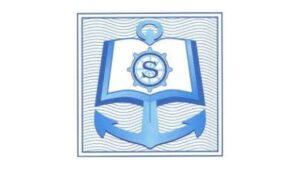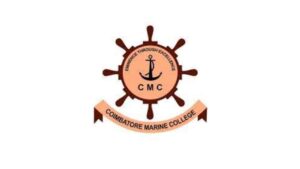Bsc Nautical Science
BSc Nautical Science, offered by the best colleges for diploma in nautical science in Dehradun, is a three-year undergraduate program that prepares students for careers in the maritime industry. The curriculum includes subjects such as navigation, seamanship, meteorology, ship stability, maritime laws, and practical training on ships. Graduates often pursue careers as deck officers or navigators. The program also involves mandatory sea training for hands-on experience, making it essential for those interested in a maritime career. If you have more specific questions, call us for more details!
Qualification for BSc Nautical Sc
To pursue BSc Nautical Science, candidates typically need to meet the following qualification criteria:
Educational Background
- Successful completion of 10+2 or equivalent with Physics, Chemistry, Mathematics, and English as subjects.
- Minimum aggregate marks in the qualifying examination (usually around 60% or as per the institute's requirement).
Age Criteria
The candidate should be within a specified age range, usually 17 to 25 years at the time of admission.
Medical Fitness
Candidates are required to meet specific medical standards to ensure they are fit for a career at sea. This involves passing a medical examination conducted by approved maritime authorities.
Entrance Exams
Some institutes conduct entrance exams for admission to BSc Nautical Science programs. Clearing these exams is often a prerequisite.
Personal Interview and Counseling
Shortlisted candidates may be required to undergo a personal interview to assess their suitability for the program.
It’s important to note that specific eligibility criteria can vary among institutions, so it’s advisable to check the requirements of the particular university or maritime institute where you plan to apply.
Yes, the IMU CET (Indian Maritime University Common Entrance Test) is often required for admission to BSc Nautical Science programs in India. The IMU CET is an entrance examination conducted by the Indian Maritime University (IMU) for various undergraduate and postgraduate maritime courses, including BSc Nautical Science.
Candidates aspiring to pursue BSc Nautical Science typically need to appear for and successfully clear the IMU CET as part of the admission process. The exam assesses candidates’ knowledge in subjects like Mathematics, Physics, Chemistry, English, and General Aptitude.
It’s important to check the specific admission requirements of the institute or university where you plan to apply, as some institutions may have their own entrance exams or additional criteria for admission.
Contact Us
Career after BSc Nautical Sc
After completing BSc Nautical Science, graduates often pursue careers in the maritime industry as deck officers or navigators. Here are some common career paths:
Deck Officer/Mate
Graduates can work as deck officers on various types of ships. Their responsibilities include navigation, safety procedures, and overseeing cargo operations.
Navigational Officer
Navigational officers are responsible for charting routes, ensuring safe navigation, and maintaining communication with the shore and other vessels.
Marine Surveyor
Some graduates choose to become marine surveyors, assessing the condition of ships and cargo to ensure compliance with regulations and safety standards.
Shipping Companies
Many graduates find employment with shipping companies in roles related to ship management, operations, or logistics.
Offshore Industry
Opportunities exist in the offshore industry, where graduates may work on oil rigs or offshore support vessels.
Port Operations
Careers in port management involve overseeing the loading and unloading of ships, managing port facilities, and ensuring compliance with regulations.
Maritime Training Institutes
Some graduates may choose to become faculty members in maritime training institutes, contributing to the education and training of future maritime professionals.
Continued education, such as pursuing higher certifications or advanced degrees, can open up additional career opportunities in the maritime sector. Additionally, with experience, there may be opportunities to advance to higher ranks within the maritime hierarchy.
Career At Sea after BSc Nautical Sc
After completing BSc Nautical Science, pursuing a career at sea involves obtaining the necessary certifications and gaining practical experience. Here are common career paths for those interested in working at sea:
Deck cadet (Trainee Navigation Officer)
Graduates can start as deck cadets and progress to become third officers, second officers, and eventually, captain (master) of a ship.
Navigation Officer
Working as a navigation officer(3rd/2nd officer) involves responsibilities such as charting routes, ensuring safe navigation, and overseeing bridge operations.
Ship Pilot
Some mariners become ship pilots, guiding vessels through challenging waterways and ports.
Dynamic Positioning Operator
In the offshore industry, professionals may become Dynamic Positioning (DP) operators, responsible for maintaining a vessel's position using advanced technology.
Chief Mate
After gaining experience, a deck officer can become a Chief Mate, responsible for managing the deck department.
Marine Superintendent
Shore-based positions like marine superintendent involve overseeing vessel operations, safety, and compliance for a shipping company.
Harbor Master
Graduates may pursue a career as a harbor master, responsible for managing port operations, vessel traffic, and safety within a harbor.
Continued professional development, obtaining higher-level certifications, and accumulating sea time are crucial for career advancement in the maritime industry. It’s important to stay updated on industry regulations and technology to excel in a career at sea.
Career And Salary After BSc Nautical Sc
After completing a Diploma in Nautical Science (DNS), individuals can embark on a career as navigating officers (deck officers) in the merchant navy. The career path typically involves gaining sea service, obtaining further certifications, and progressing to higher ranks. Here’s an overview of the career and potential salary progression after DNS:
Deck Cadet (Trainee Navigating Officer)
Approx. 500 USD / monthAfter completing the DNS program, individuals often start their career as deck cadets. Deck cadets undergo practical training on merchant ships and work under the supervision of experienced officers.
Junior Navigating Officer
Approx 2400-3000 USD / monthWith sufficient sea service and completion of required training, individuals can advance to the position of a junior navigating officer. This role involves more responsibilities in ship navigation, safety procedures, and watchkeeping.
Navigating Officer (Officer of the Watch - OOW)
Approx 3500-5500 USD / monthAs individuals gain experience and accumulate sea service, they may progress to the position of a navigating officer (OOW). This role involves being in charge of a watch on the ship’s bridge and overseeing navigation and safety procedures.
Chief Officer
Approx 8000-11000 USD / monthFurther progression in the career can lead to the role of Chief Officer. Chief Officers have significant responsibilities in managing the deck department, cargo operations, and overall ship operations.
Captain (Master Mariner)
Approx 12000 – 15000 USD / monthThe highest rank for a navigating officer is Captain or Master Mariner. Captains are responsible for the overall command and navigation of the ship. This position requires extensive experience, additional certifications, and a proven track record.
It’s important to note that salaries in the merchant navy are often competitive, and individuals may also receive additional benefits such as allowances, bonuses, and shore leave.
The actual salary can vary based on individual circumstances, shipping company policies, and prevailing industry conditions. Continuous professional development and obtaining higher-level certifications can contribute to career advancement and increased earning potential.
Best college for BSc Nautical Sc
Several reputable institutions offer BSc Nautical Science programs. The “best” college can depend on factors such as accreditation, faculty, infrastructure, and placement records, here are a few well-regarded maritime institutes for BSc Nautical Science:

Indian Maritime University (IMU), Chennai
IMU has multiple campuses across India and is a premier institution for maritime education. It conducts the Common Entrance Test (CET) for admission to various maritime programs.

Tolani Maritime Institute (TMI), Pune
Located in Pune, TMI is known for its high-quality maritime education and training. It offers a comprehensive BSc Nautical Science program.

Samundra Institute of Maritime Studies, Mumbai
This institute, situated in Mumbai, is recognized for its maritime courses, including BSc Nautical Science. It has modern facilities and a strong emphasis on practical training.

Coimbatore Marine College (CMC), Coimbatore
Anglo Eastern Maritime Academy (AEMA) is known for its involvement in maritime education and training. It’s associated with the Anglo-Eastern Group, which is a global ship management company.

Great Eastern Institute of Maritime Studies (GEIMS), Mumbai, India
It is an esteemed maritime training institute located in Mumbai, India. Established in 2006, GEIMS is committed to providing quality education and training in the field of maritime studies. The institute offers a range of courses approved by the Directorate General of Shipping (DGS), Government of India.
Before making a decision, consider factors such as faculty expertise, industry collaborations, infrastructure, placement records, and accreditation. Additionally, check for any updates or changes in the rankings or reputation of these institutions.
Difference between BSc Nautical Sc and Diploma Nautical Science
The main differences between BSc Nautical Science and Diploma in Nautical Science lie in their academic depth, duration, and the level of qualification they confer:
- BSc Nautical Science is a bachelor’s degree program that provides a more extensive and comprehensive education. It typically spans three years and includes a broader range of subjects, including theoretical and practical aspects of navigation, seamanship, meteorology, and maritime laws.
- Diploma in Nautical Science is a diploma-level program, usually with a duration of one year. It is more focused on practical training and essential theoretical knowledge needed for entry-level positions in the maritime industry.
- BSc Nautical Science is a three-year undergraduate program, equivalent to other bachelor’s degrees.
- Diploma in Nautical Science is a shorter, one-year program that is more concentrated on specific skills and knowledge required for immediate entry into the workforce.
- BSc Nautical Science provides a broader academic foundation, often leading to career opportunities at higher ranks on ships, including becoming a deck officer or navigator.
- A diploma in Nautical Science is typically geared towards entry-level positions, such as trainee deck cadet or similar roles, with a focus on practical skills for immediate employment.
- BSc Nautical Science involves a more in-depth study of various maritime subjects, including mathematics, physics, navigation, and marine regulations. It may also include additional courses in communication skills, management, and leadership.
- Diploma in Nautical Science offers a more concentrated curriculum, emphasizing practical aspects of seamanship, navigation, and safety procedures.
The choice between these programs depends on individual career goals, educational preferences, and the desired level of academic depth. BSc Nautical Science is generally suitable for those seeking a more comprehensive and versatile maritime education, while Diploma in Nautical Science is tailored for quicker entry into specific roles within the industry.

